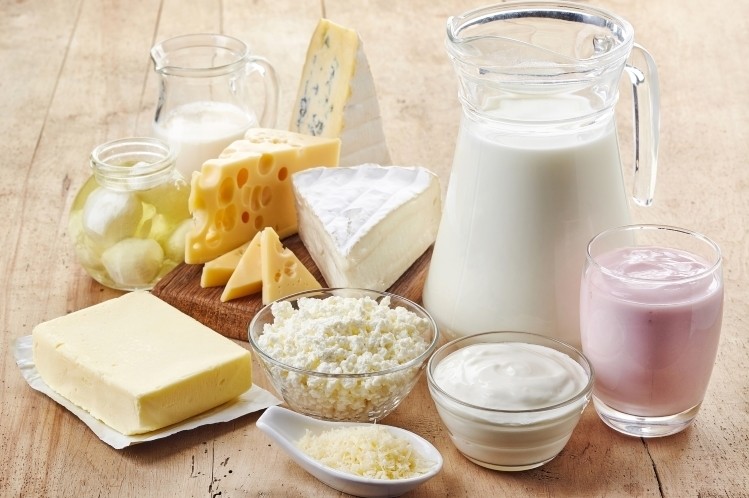Dairy groups applaud new dietary guidelines but Physicians Committee slams ‘racially tinged promotion of dairy products’

Daily inclusion of low-fat and fat-free dairy foods is recommended in all three DGA healthy dietary patterns: three servings in Healthy U.S. and Healthy Vegetarian, and 2 to 2.5 servings in Healthy Mediterranean.
“Dairy foods such as milk, cheese and yogurt offer essential nutrients that help nourish people throughout life,” said National Dairy Council (NDC) president Jean Ragalie-Carr.
“At a time when affordable nutrition has never been more important to our nation, dairy foods, including lactose-free varieties, are a highly nutritious and accessible option that can help fill important nutrient gaps and support overall well-being. We’re pleased to see dairy consumption recommended for its contributions to healthy dietary patterns based on the scientific evidence.”
The DGA are updated every five years by the U.S. Department of Agriculture (USDA) and the U.S. Department of Health and Human Services (HHS).
NDC participated in the public process around the DGA, submitting written comments and oral testimony to USDA and HHS that summarized scientific evidence on the role of dairy foods in healthy dietary patterns.
The Guidelines are used as a resource in developing federal food and nutrition programs, such as the school meals programs and the Special Supplemental Nutrition Program for Women, Infants, and Children (WIC).
For the first time, the DGA recommendations for the birth-to-23-month time period are included and yogurt and cheese were recognized as complementary feeding options for infants starting as early as six months. Dairy foods (whole milk, reduced-fat cheese and reduced-fat plain yogurt) were included in recommendations for toddlers 12-23 months.
The NDC said the DGA also noted the nutrients of concern for Americans continue to be calcium, vitamin D, potassium and fiber; and said dairy foods are important sources of calcium, vitamin D and potassium in the US diet and can help close these nutrient gaps.
The dairy group added the document links dairy foods to bone health in both adolescents and adults, showing dairy’s important nutritional support for accrual of bone mass and promotion of bone health outcomes, including prevention of the onset of osteoporosis.
Physicians Committee faults guidelines for racial bias
While dairy groups might be happy, the Physicians Committee for Responsible Medicine is not.
It is demanding the U.S. Department of Agriculture retracts the 2020-2025 Dietary Guidelines for Americans, saying the document, which aims to guide food choices for the next five years, is likely to maintain high cancer rates in Americans, especially Black Americans.
“Secretary of Agriculture Sonny Perdue released the Guidelines too hastily. They need to be pulled back and redrafted,” said Susan Levin, director of nutrition education for the Physicians Committee for Responsible Medicine.
“The Guidelines maintain a racially tinged promotion of dairy products, which are far less healthful than other calcium sources and have been shown to increase the risk of prostate and breast cancer, both of which are particularly deadly in the Black community, as well as an inappropriate emphasis on meat, rather than healthier foods.”
Breast cancer death rates are 40% higher among Black women, compared with white women. Black men are more likely to get prostate cancer than other men and twice as likely to die from prostate cancer than other men.
The new Guidelines continue to recommend three servings of dairy a day.
The Physicians Committee for Responsible Medicine said research funded by the National Cancer Institute, the National Institutes of Health, and the World Cancer Research Fund found women who consumed one cup of cow’s milk per day had a 50% increased chance for breast cancer.
The Physicians Committee also added high intakes of dairy products, including whole and low-fat milk and cheese, increase the risk for prostate cancer, according to a 2015 meta-analysis. Another study found those who consumed three or more servings of dairy products a day had a 141% higher risk for death due to prostate cancer compared to those who consumed less than one serving. Both high- and low-fat dairy products were associated with increased mortality.
In 2018, the American Medical Association passed a resolution recognizing that lactose intolerance is common among many Americans, especially Black Americans, Asian Americans, and Native Americans, recommending the Guidelines indicate that “meat and dairy products are optional.”
In August 2020, the Physicians Committee submitted a letter to the USDA and the Department of Health and Human Services, signed by nearly 500 health care professionals, arguing the Scientific Report of the 2020 Dietary Guidelines Advisory Committee “preserves racially biased dairy-promoting guidelines.”
The Physicians Committee is calling on the USDA to rework the Guidelines by deleting dairy promotions, since it said dairy products increase cancer risk while nondairy calcium sources help prevent cancer; to avoid equating “protein” with meat, as there are sources of protein without meat’s fat and cholesterol; and to increase the emphasis on plant-based foods, which are associated with reduced risks of obesity, cancer, and cardiovascular disease.
Edge praises document but pushes for school milk options
Edge Dairy Farmer Cooperative, one of the largest dairy coops in the country, welcomed the inclusion of dairy in the guidelines, but said it didn’t go far enough and urged Congress to help broaden the milk options children have in school.
Brody Stapel, president of Edge and a dairy farmer in Wisconsin, said, “Edge welcomes the continued recognition of the importance of dairy in the daily diet with the release of the 2020-2025 Dietary Guidelines for Americans.
“Unfortunately, the agencies and scientific review committee missed an opportunity to address and include the newer, available science on the nutritional benefits from fuller-fat dairy and a wider array of products. The DGA directs important nutritional and feeding programs in our schools and our communities, like the school lunch program. The lack of recognition of the nutritional benefits from fuller-fat dairy in the new guidelines will continue to hinder the availability of these food options in our schools.
“We call on Congress to help support the efforts to broaden the flexibility for milk allowed in the school lunch program.”





